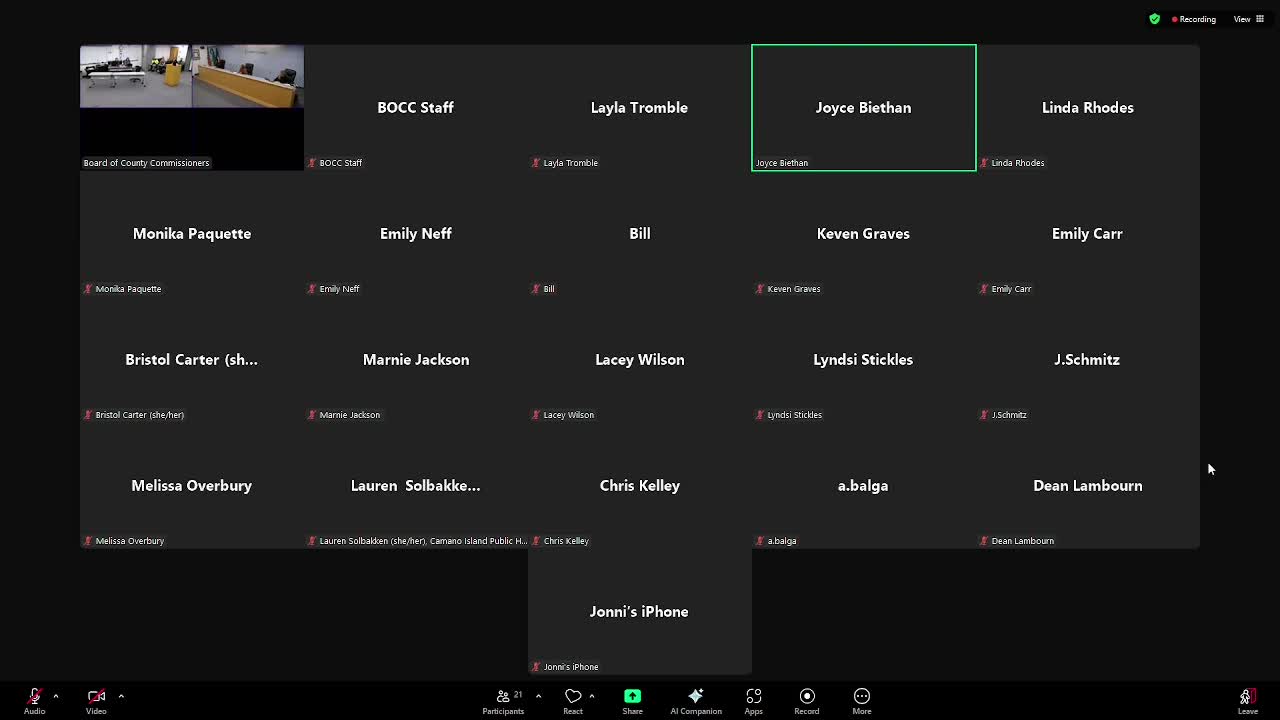Residents propose legalizing wheeled housing; commissioners flag aquifer and septic capacity questions
Get AI-powered insights, summaries, and transcripts
Subscribe
Summary
A public commenter urged Island County to permit wheeled housing (RVs, tiny homes on wheels) on private property to boost affordable housing. Commissioners said septic capacity and the county's sole-source aquifer raise technical questions that need staff review.
Joyce Beethen, a Langley-area resident, told the Island County commissioners that legalizing wheeled housing — motor homes, trailers and tiny homes on wheels — on private property could be a fast way to increase affordable housing countywide.
"Wheeled housing would be motor homes, trailers, tiny homes on wheels that could be put on people's private property," Beethen said. She argued that many existing septic systems could accommodate an additional small household and that allowing wheeled housing would avoid larger development footprints.
Commissioner Johnson responded with a caution about sanitary infrastructure and aquifer capacity, saying the governing hydrologist has "reassured us repeatedly about our water supply" and stressing that the county must consider system utilization rather than only counting bedrooms. "If the system has the capacity for wheeled housing, then the system is safely available for that use," Johnson said, while noting that overcrowding in a single house could exceed a septic system's limits.
Amy Bullis, who described herself as a full-time resident and landowner, voiced related concerns about the county's sole-source aquifer and urged more study of precipitation, recharge and water extraction before approving new footprints of development. Her comments emphasized the potential for stormwater runoff to contaminate aquifers as growth increases.
No action was taken at the meeting; commissioners encouraged commenters to follow up with planning and environmental staff for technical assessment of septic, water and code changes.
